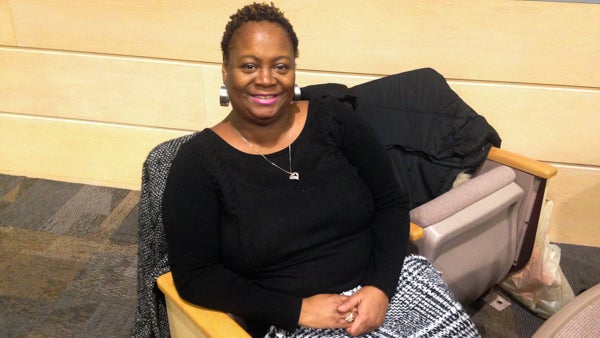A Jehovah’s Witness balances surgery with beliefs
Listen
Audrey Butler attending services at Turnersville Assembly Hall of Jehovah's Witnesses. (Courtesy of Cheena Butler)
When Audrey Butler dedicated herself to becoming a Jehovah’s Witness seven years ago, she knew she would never accept a blood transfusion—even if that meant making a choice between life and death.
“Well the scriptures do tell us that the blood is the soul. So that’s how precious blood is to us. It’s your life. It’s the person’s life,” she explains.
Butler and other Jehovah’s Witnesses believe that several passages in the Bible forbid them from consuming blood in any way, including via blood transfusions. This belief can be at odds with standard medical practice; during the course of surgery, some patients require blood transfusions in order to combat blood loss.
At age 46, Butler began suffering from pain and stiffness in her knee. Doctors told her she had arthritis, and that she would likely need a knee replacement in the coming years.
Butler avoided surgery for as long as possible, enduring painful knee injections and doing her best to live with a limp. But eventually, she began to feel that her limp was slowing her down significantly. Her arthritis was having a considerable impact on her quality of life.
Butler knew she needed the knee replacement. She also knew she was unwilling to abandon her faith.
Listen to the full story above.
To learn more about Pennsylvania Hospital’s Center for Transfusion-Free Medicine, visit the center’s website.
WHYY is your source for fact-based, in-depth journalism and information. As a nonprofit organization, we rely on financial support from readers like you. Please give today.






